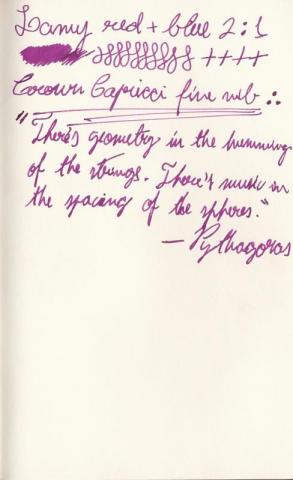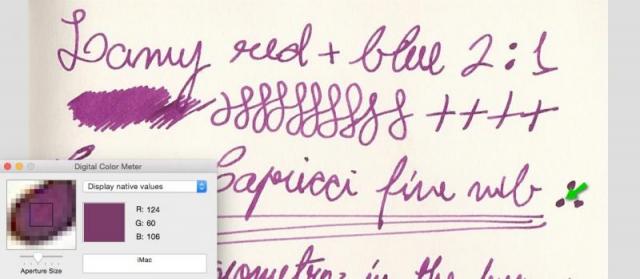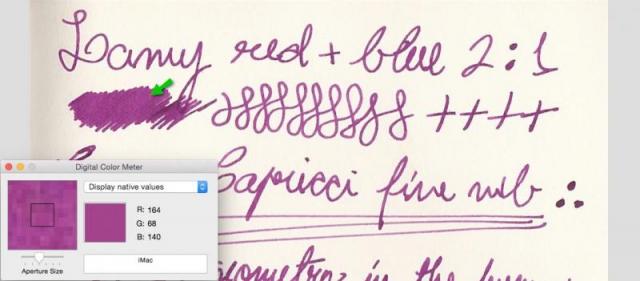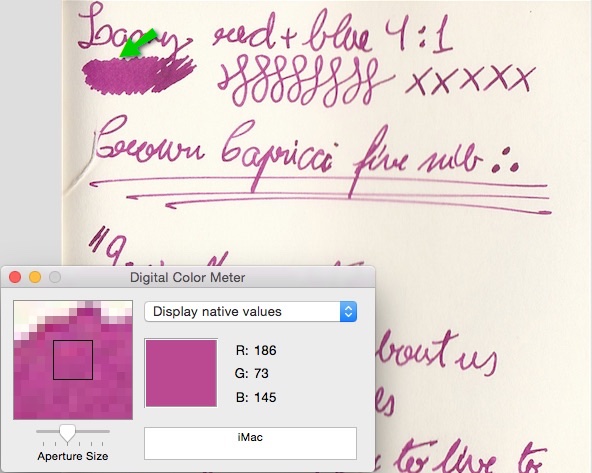Search the Community
Showing results for tags 'lamy red'.
-
So I’ve got a small bottle of Lamy Red and about three boxes of Lamy Blue cartridges. As I’ll probably never use those blue cartridges, I decided to have some fun mixing those inks together. This is the 2:1 Red/Blue mix, plus RGB indexes for the darkest and lightest areas: Now the 3:1 Red/Blue mix + RGB: …aaand the 4:1 Red/Blue mix + RGB: Method: Lamy explicitly says in their website not to mix their inks, so I left each concoction sitting quietly for 24 hours in a drawer in a sample container before putting a little bit of ink on the pen (I used a regional brand pen with a fine nib made in Taiwan). I didn’t feel any difference in writing with any of the mixes compared to the pure blue or red, except for a little bit of spread, but so slight that I only noticed it in the scans. Also, I forgot to add paper information: the tests were made on a 70 g/m² acid-free "Ivory-colored" paper from a Moleskine pocket notebook. There was no bleed-through, even on the ∴ (where I let the nib rest); ghosting/echoing was as noticeable as the pure Blue and more noticeable than the pure Red on the same notebook. My conclusions: I liked the 2:1 mix a lot. Didn’t care much for the rosy tint of the other two mixes (that’s why I stopped and didn’t add red any further). I was surprised that the orange of the Lamy Red didn't appear on the 4:1 mix (if you dilute Lamy Red you get a "Vitamin C orange"). Also, I gotta say that 3:1 and 4:1 look very similar to me. I'm going to wait 24 more hours before fully inking a pen with the Lamy Beetroot (2:1 mix) and carrying it around. What do youse think?










